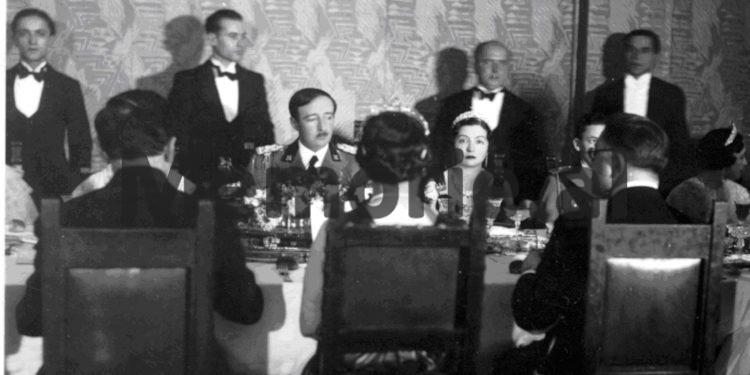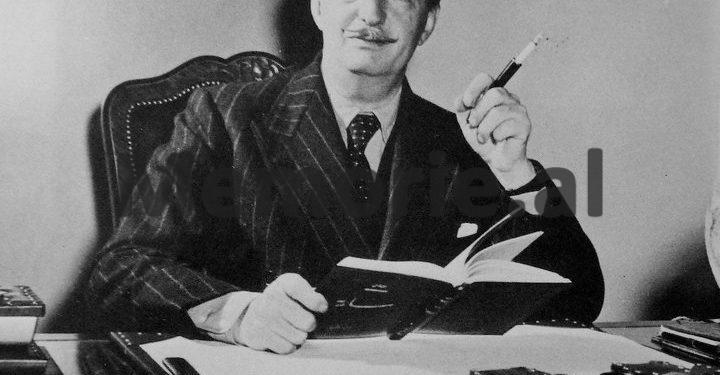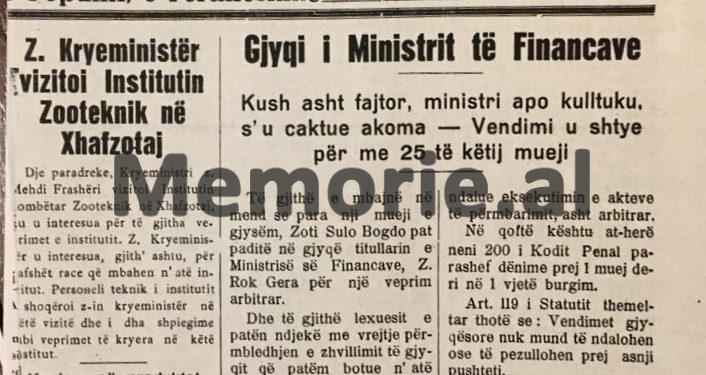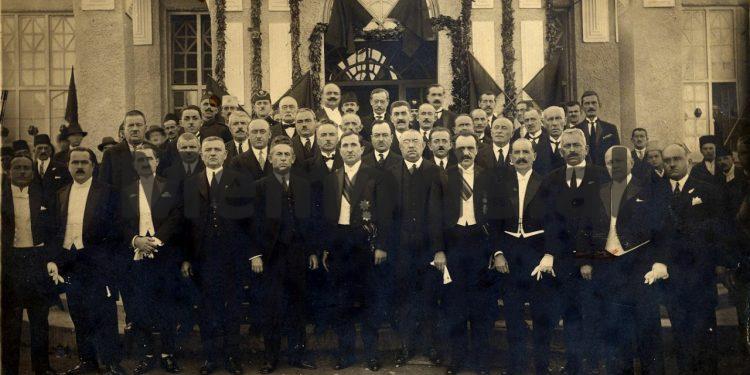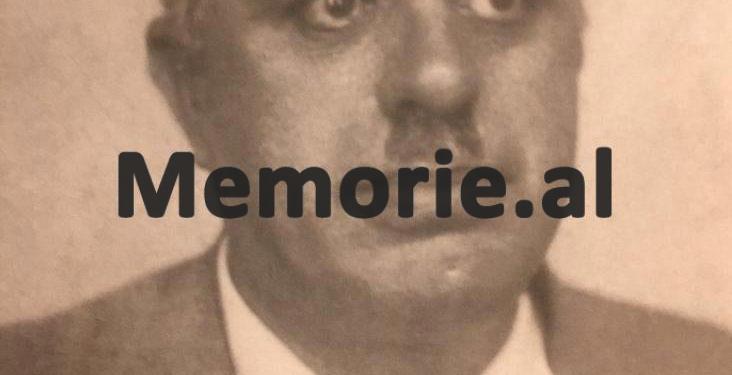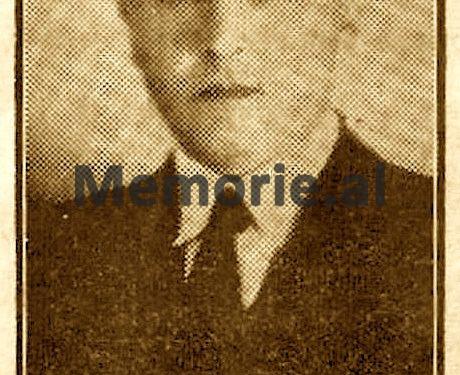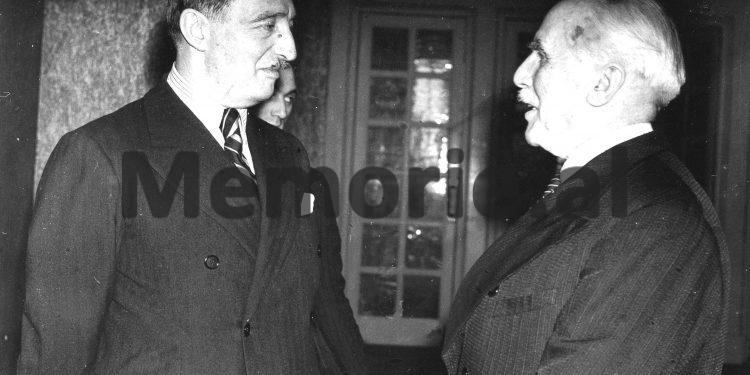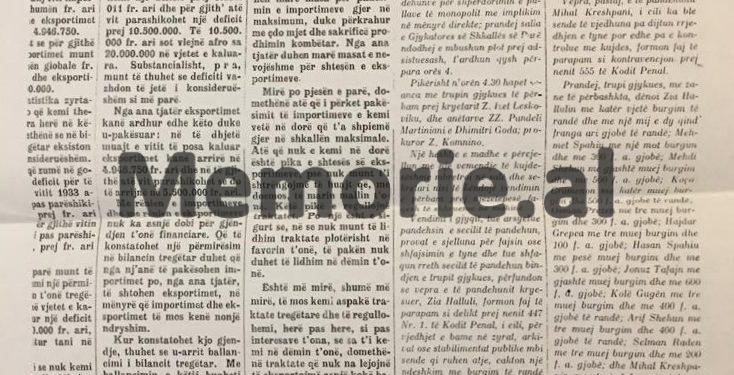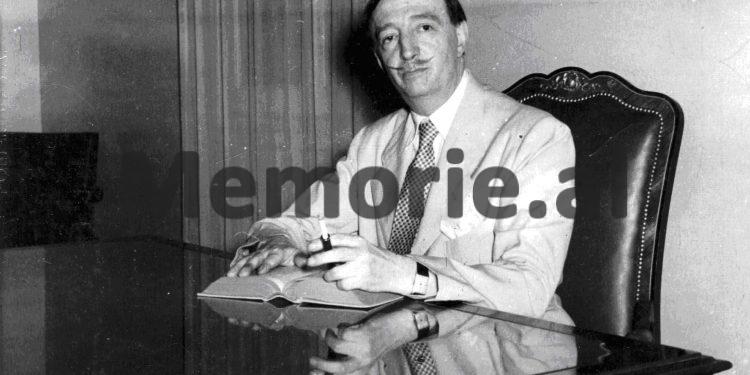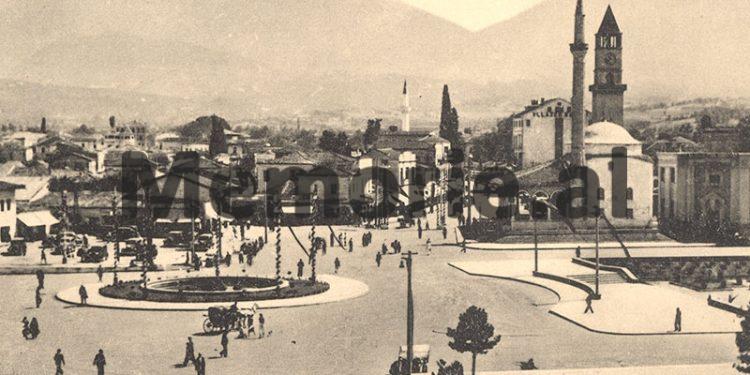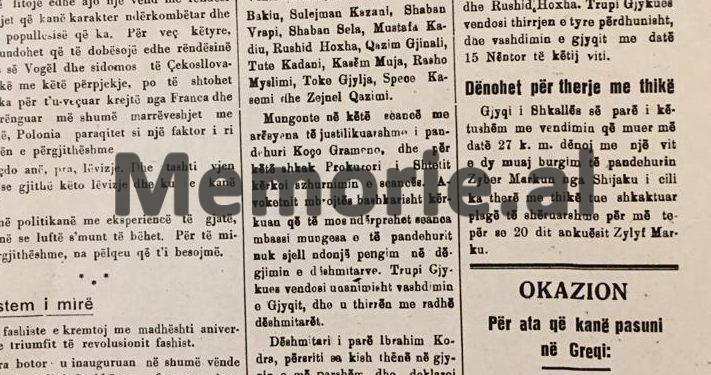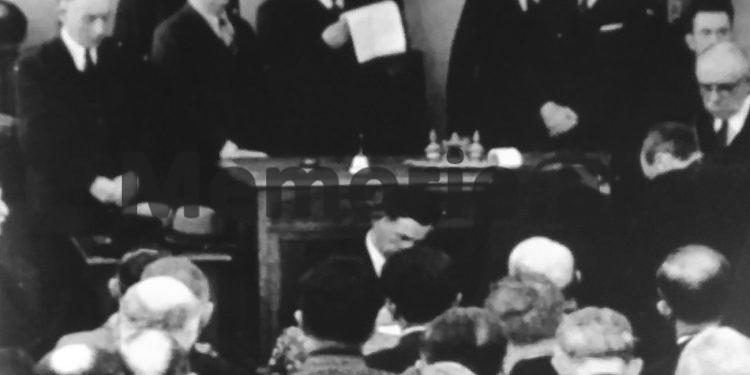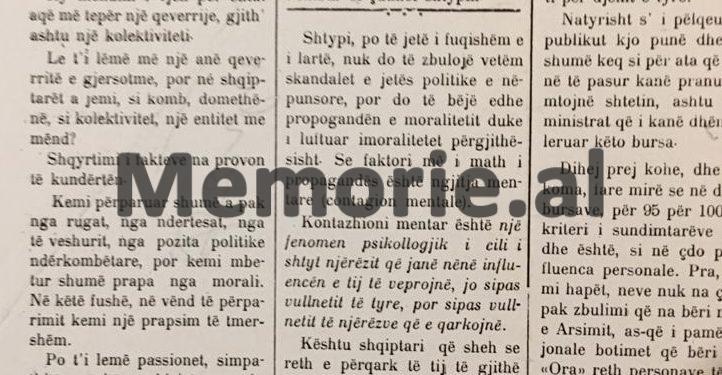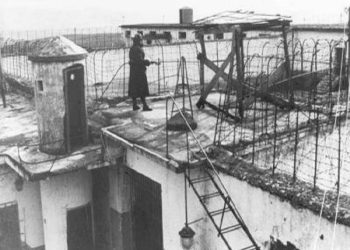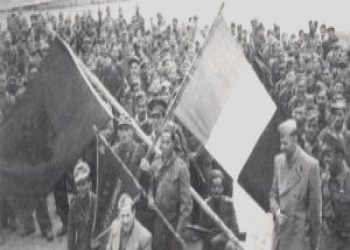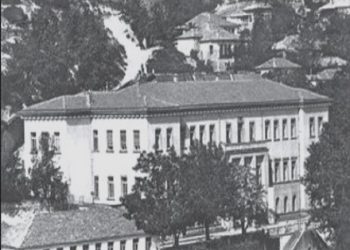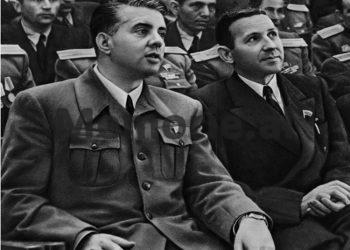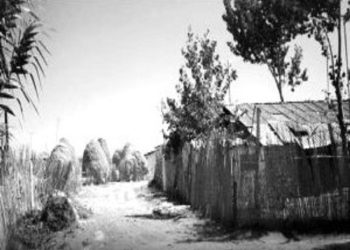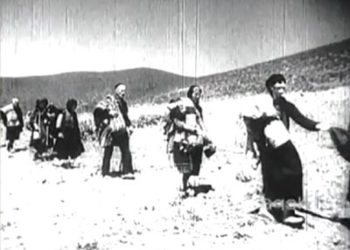Dashnor Kaloçi
Memorie.al publishes the unknown history of the famous trial of the implicated in the affair of the monopoly stamps of the Ministry of Finance during the Zog Monarchy, which lasted for five years from 1932 to 1936 and was widely reflected almost from all the major newspapers of that time, such as “Besa”, “Vatra”, “Arbnia”, etc. The testimonies of Ministers Lame Kareco, Rrok Gera, Kol Thaçi, etc., against the accused, who were sentenced to severe imprisonment for embezzling about half a million gold francs, as well as other witnesses such as Ibrahim Kodra, Vehib Hoxha, Sali Tagani, Zyber Bakiu, Sulejman Kazani, Shaban Vrapi, Shaban Sela, Mustafa Kadiu, Rushid Hoxha, Qazim Gjinali, Sute Kadami, Kasëm Muja, Rasho Myslimi, Toke Gjylja, Speo Kasemi and Zejnel Qazimi.
“Kol Guga says that Zija Hallulli told him that the stamps were not stolen, but simply flowed from his salary, so he bought them without hesitation, of course greedily dyke and the profit that allowed the stamps bought in this way, i.e. with an account 10 percent more. Zija Hallulli completely denies the statements of Kol Guga, stating that he has never sold monopoly stamps. Arif Shehu, who is Kol Guga’s husband in the trade, stated that even in Kola’s absence, he bought stamps from Zija Hallulli and that Zijaji assured him in the honor of the family that the stamps are not stolen but derived from the payment of the salary that would take over for his employment as a Protocol of the Audit Council. Zija Hallulli is questioned again, and in the presence of Arifi, he vehemently denies that he has sold stamps. Defendant Hajdar Grepca stated that he had sold stamps to Haki Ali Mehmeti, a former servant of the public notary, Dr. Jonuz Tafaj, and he received these stamps from Osman Preza and once from Zija Hallulli. Osman Preza and Zija Hallulli are asked by the Mayor if they have given him stamps, and both categorically deny it ”. Thus, among other things, the newspaper “Besa” wrote in an article in the period of the Zog Monarchy regarding the famous judicial process otherwise known as the “trial of the monopoly stamps” where some high officials of that country were accused and implicated. time for “abuse of official position and illegal acquisitions”, a process that lasted from 1932 to 1936. How did that trial take place, who were the bodies of the judiciary and the main defendants, what accusations were leveled against them, how did they cooperate with each other, who were the officials of the Ministry of Finance implicated in that corrupt affair and how were they finally convicted? of that trial which is known as the most sensational of the period of the Bird Monarchy and which lasted for five years in all levels of the judiciary ?. Regarding these and other unknown aspects of that trial, we are familiar with some of the articles in various newspapers of that time, such as “Besa”, “Vatra”, “Arbnia”, etc., which were followed in detail on the pages of them all his sessions.
Trial of Appeals Stamps
The trial of those involved in the “monopoly stamps” began sometime in 1932 in the Court of First Instance (Fact Court) in Tirana, and then it continued in the Court of Dictatorship, (today the Court of Appeals) extending to 1936. Regarding those Dictation sessions, among other things, the newspaper “Besa” of those years wrote: “Kol Guga says that Zija Hallulli told him that the stamps were not stolen, but simply flowed from his salary, so he bought them without hesitation, of course, the coveted dyke and the profit left by the stamps purchased in this way, viz. with an account 10 percent more. Zija Hallulli completely denies the statements of Kol Guga, stating that he has never sold monopoly stamps. Arif Shehu, who is Kol Guga’s husband in the trade, stated that even in Kola’s absence, he bought stamps from Zija Hallulli and that Zijaji assured him in the honor of the family that the stamps are not stolen but derived from the payment of the salary that would take over for his employment as a Protocol of the Audit Council. Zija Hallulli is questioned again, and in the presence of Arifi, he vehemently denies that he has sold stamps. Defendant Hajdar Grepca stated that he had sold stamps to Haki Ali Mehmeti, a former servant of the public notary, Dr. Jonuz Tafaj, and he received these stamps from Osman Preza and once from Zija Hallulli. Osman Preza and Zija Hallulli are asked by the Mayor if they have given him stamps, and both categorically deny it. Defendant Koço Grameno was questioned, stating that he had the right to his previous statements. He received a package of monopoly stamps from Mehdi Shehu to sell in Korça. And there he sold it to Mihal Kreshpan, whom he had a close friend, leaving him with a 25 percent profit. He once sent 250 gold francs of telegrams to Mehdi Shehu from Korça. And Zija Hallulli has once sent 500 gold francs in the same way. In recent times, when the issue of stamps has been raised, it has burned what was left unsold, which amounted to 1,500 gold francs. Zija Hallulli is asked if he received the money sent by Koço Grameno and states that he received the money from the post office, but it was not money that flowed from the alleged stamps. They were against a debt that he had given to Koço three months ago when he was in Tirana and was in great need. (The trial was adjourned to Saturday, October 13).
Statement of witnesses in court
The fourth session of the stamping process of the Ministry of Finance opened on Saturday after lunch. The trial is being presided over by Mr. Izet Leskoviku, the defense counsel and all the defendants were present. In this session, 15 witnesses of the World Law were asked to be questioned: Sulejman Dashi, Vehib Hoxha, Kamber Hidi, Ibrahim Kodra, Mehmet Latifi, Abdyl Koka, Zyhdi Ismaili, Bajram Mehmet Daci, Beqir Keqi, Muharrem Shatku, Llambi Niçi, and Huan Valla. After each of them was sung the textual deposit made in the previous Court, which they confirmed completely, these deposits were repeated. Sulejman Dashi stated that Jonuz Tafaji has always bought the stamps at ay, through his servant Haki Ali Mehmeti, who claimed tips from him, that he often bought stamps. He had promised them and gave them 3-4 lek when he bought them at ay, but he did not give this tip every time. After Haki Ali Mehmeti was not satisfied with these small gifts given to Sulejman Dashi, he went to the other stammers who gave him more tips. Coincidentally, he met one day when he told Notary what was the reason he didn’t buy the stamps at ay. And the Notary has snarls, dyke said to go buy to Sylejmani and not elsewhere. Despite this, the servant continued as before, without considering the order of his superior. Other witnesses: Kamber Hidi, Osman, and Beqir Koçi, Bajram Mema, stated that they had seen Zija Hallulli as a gambler and that he had lost several times, Mehmet Daci stated that he had no knowledge, as did witness Muharrem Shatku. Ismail Priska, the baker, said that he did not see Zija Hallulli entering the house of Dr. Jonuz Tafajt. Abdyl Koka said he had gone to Dr.’s office. Tafaj and had given him a letter given to him by Zija Hallulli. Zija Hallulli is asked what she wrote in that letter and says that she had ordered a loan deed owed to Leo Coba, a sum of 120 gold napoleons, which she had borrowed. Thus Abdyl Koka had responded to Zijas, that the act was almost the next day at a certain hour. I Asked Dr. Jonuz Tafaj and remembers that such an act was edited in his Notary Office, between Mr. Leo Coba and Zija Hallulli. Witness Mr. Huan Valla stated that he found a package of stamps in the Shallvares field and kept a record on it, which is located between the court floors. Zija Hallulli, as in the first hearings, continues to deny any knowledge and does not accept any accusation from the witnesses who accuse him. Witnesses were missing: Vehib Hoxha and Ibrahim Kodra, for whom it was decided to be heard at the next hearing on the 27th of this month. (Vatra newspaper. Tuesday, October 23, 1934)
Witness testimony
The fifth court hearing on the Ministry of Finance’s stamps opened on Saturday after lunch. This time since Mr. was missing. Izet Leskoviku, the trial was presided over by Mr. Ymer Berati. In this session, the witnesses of the World Law were scheduled to be heard: Ibrahim Kodra, Vehib Hoxha, Sali Tagani, Zyber Bakiu, Sulejman Kazani, Shaban Vrapi, Shaban Sela, Mustafa Kadiu, Rushid Hoxha, Qazim Gjinali, Sute Kadami, Kasëm Muja, Rasho Myslimi, Toke Gjylja, Speo Kasemi, and Zejnel Qazimi. Defendant Koço Grameno was absent from the hearing on justifiable grounds, and the State Prosecutor requested that the hearing be adjourned. The defense attorney jointly requested that the hearing not be adjourned after the defendant’s absence did not impede the hearing of witnesses. The Trial Panel unanimously decided to continue the trial, and the witnesses were summoned in turn. The first witness, Ibrahim Kodra, reiterated that he had said in the previous trial, and stated again that four years ago, Zija Hallulli had a godfather player in his cafe and had lost a large sum of money of five napoleons. Zija Hallulli denies this, claiming that Ibrahim Kodra had never had a cafe to have a Zijai player and lost. Vehib Hoxha stated that he knew from the defendants Selman Radën, Hasan Spahiu, and Dr. Jonuz Tafajn. Asked if he knows anything about the issue of stamps, he states that they have come to the National Bank where he is the accountant, Selmani, and Hasani, who has proposed the sale of stamps, as for Dr. Jonuz Tafajan has a collaborator in banking relations with Notary, recognizing him as an honest man. Zija Hallulli has not been notified before that the stamp scandal came to light. Witnesses Sali Tagani, Zyber Bakiu, Sulejman Tagani, Shaban Vrapi, Shaban Jusuf Sela, who all stated that they have no knowledge about the issue of stamps, also stated that witnesses Qazim Gjinali, Speo Kasemi, and Zejnepe Qazimi. Witnesses were missing: Rasho Myslymi, Toke Gjylja, Sute Kademi, Kasem Muja, Mustafa Kadiu, Mustafa, and Rushid Hoxha. The Trial Panel upheld their summons and continued the trial on November 15 of this year. (Vatra Newspaper) Tuesday, October 30, 1934)
The decision of the court with severe sentences
“The judge ruled against the abusers of the monopoly stamps.” “Zija Hallulli and eleven collaborators were sentenced to imprisonment and heavy fines.” With great interest, the decision of the court against the defendants for the misuse of monopoly stamps with direct implication was expected yesterday afternoon from the public; therefore, the seat of the First Instance Judge was filled to the brim by the attendees before 4 o’clock. At exactly 4:30 a.m., the session with the trial panel opens, consisting of the chairman. Mr. Izet Leskovik, and members z. Pandeli Martiniani, Dhimitër Goda; prosecutor Mr. Komnino. A great silence followed with careful attention as he reigned in the hall, and the secretary began to sing the twenty-five-page decision to write the car. The decision of the Court, to justify the presumption of each defendant, the evidence brought about their guilt or acquittal and to appear around each presumed the conviction of the trial panel, concludes that the offense of the main defendant, Zija Hallulli, constitutes premeditated guilt as a crime. Article 477 No. 1 of the Criminal Code, which for thefts in offices, archives, or public establishments on items stored there, imposes a penalty of imprisonment of up to four years and a severe pre-determined fine. For the other defendants: Mehmet Shaban Spahiu, Mehdi Shehu, Koço Grameno, Osman Preza, Hajdar Grepsa, Hasan Spahiu, Jonuz Tafaj, Kol Guga, Arif Shehu and Selman Rada, their work consists of the purchase, acceptance, mediation, and sale of The State Monopoly Stamps are to blame for the offense provided for in paragraph 1 of Article 469 of the Criminal Code, where those who commit these offenses, without cooperating in the main offense, are sentenced to imprisonment for up to two years and a fine of up to 100 gold francs. The action, then, of the defendant, Mihal Kreshpani, who bought the stolen items without knowing their course but also without carefully checking them, is to blame as a convention under Article 555 of the Criminal Code. The trial panel therefore jointly sentenced Zija Hallulli to four years in prison and a fine of one thousand two hundred gold francs; Mehmet Spahiu with a prison term and a fine of 300 gold francs; Mehdi Shehu, with six months in prison and a fine of 500 gold francs; Koço Grameno with four months in prison and a fine of 500 gold francs; Osman Preza with three months in prison and a fine of 300 gold francs; Hajdar Grepca with three months in prison and a fine of 100 gold francs; Hasan Spahiu with five months in prison and a fine of 300 gold francs; Jonuz Tafajn with six months in prison and a fine of 600 gold francs; Kol Guga with three months in prison and a fine of 400 gold francs; Arif Shehu with three months in prison and a fine of 400 gold francs; Selman Radën with three months in prison and a fine of 200 gold francs; and Mihal Kreshpani with three hundred gold francs fine. Mehmet Shaban Spahiu was sentenced to life imprisonment for lack of convincing evidence and convincing legal arguments, as he spent as much time in prison as he did in prison. The decision can be dictated within the legal deadline. (Besa Newspaper January 16, 1934)
Dr. Jonuz Tafaj is acquitted
“Dr. Jonuz Tafaj takes the blame “. The Court of First Instance yesterday at 11:30 a.m. pronounced the verdict in common, acquittal, Dr. Jonuz Tafajn, Public Notary, for lack of convincing evidence and arguments, in accordance with the arguments of the Court of Dictatorship, O P on the accusation made against him for buying stolen stamps. He then sentenced the implicated in the matter of stamps as follows: Mehdi Shehu is sentenced to five months in prison and fined 400 gold francs; Koço Grameno was sentenced to two months in prison and fined 306 gold francs; Osman Preza with 15 days and 100 gold francs; Hajdar Grepca with two months of imprisonment and 50 gold francs fine; Kol Guga and Arif Shehu with three months and 100 gold francs fine; Selman Poda with two months and 100 gold francs fine; Hasan Spahiu with four months and 200 gold francs fine. The day after a decision of almost four years, the Tirana Judicial Judge ruled in favor of the closure of nearly half a million gold francs of state stamps from the treasury of the Treasury Department at the Ministry of Finance. According to this decision, Ibrahim Hallulli, Petro Ndrenika, and Bexhet Shehu were acquitted due to a lack of convincing evidence that the defendants had committed the assaults that were attributed to them.
(Besa Newspaper June 1 and 17, 1936)
Testimony of Ministers Lame Kareco and Rrok Gera in court
In the famous trial that lasted about four years (1932-1936) and was then known differently as The Trial of the Stamps, among many witnesses who were called to give their testimonies regarding that financial scandal on a scale of The former Minister of Finance, Lame Kareco and the Secretary-General of that ministry, Rrok Gera, also testified. From their testimonies, which were published in the front pages of the press of that time, we are giving that of the newspaper “Besa” of Tirana (dated October 21, 1933) where, among other things, it is stated: “After a five-minute break in yesterday’s hearing, after the Trial Judge had heard the testimony of the witness. Mr. Lame Kareco, former Minister of Finance, summoned the second witness, the Secretary-General, Mr. Rrok Gera. After the usual questions are asked, the President addresses the witness, saying: “Xhevdet Hasani is accused of embezzlement. What do you know about this? Mr. Gera replies: “His lordship is the head of the Treasury and as such, he has in his direction, among other things, the cash register and valuables. When I was appointed Secretary-General in June 1930, I had to put myself in the spotlight, both for other actions and for the state of valuables. When I saw that the situation was not working properly, I asked the assistant organizer, Mr. Nodari, to draft an internal regulation. The supplementary regulation in this way was presented by Mr. Merlino, to the then Minister Mr. Kol Thaçi who brought it to the Control Council for approval. The approved regulation, together with the relevant statements, was returned to the Ministry of Finance and, in the absence of a topic, as evidenced by the Director of Accounting, Mr. Naraçi, and with the book, the delivery was handed over to the Treasury Directorate.
Zogu printed the fiscal stamps in Corfu, Milan, and Vienna
During his testimony at the stamp trial, the Secretary-General of the Ministry of Finance, Rrok Gera, also spoke about the strict manner of the Albanian state of that time regarding the printing and preservation of monopoly stamps, which states, among other things: The witness continues to explain why the internal regulation was not implemented, which is why it was impossible without fulfilling the elements to know the effective condition of the valuables. Chairman-Why was no disciplinary action taken against the delays? Witness: If the Directors needed to be immediately reprimanded for remembering their original duties, the state apparatus would never work. Chairman-Mr. brought from morality Mr. J.. Hasani? Witness: I do not know this and I have no reason to doubt it. Prosecutor-Where are the printing minutes? Witness-Selling Procedures is as follows: A contract is entered into with a photograph and an employee is appointed to oversee the printing operations for which it is maintained daily by a record. takes over at the base of a special process. Stamps are variously printed, in 1924 in Milan, in 1925 and 1926 in Corfu, and in 1927 in Paris. The processes of repression of the last two, I have ascertained as a member of the Commission of Inquiry, that they are completely absent. Even the stamps printed in Paris in 1927 during the time of the former Minister Mr. Sulejman Starova, when I came to the Ministry, I heard that they have the mother without surrendering, in the corridors of the Ministry. I did not have any knowledge about this, but once when I was the Secretary-General of the Prime Ministry, Mr. Teki Selenica told me that a package with consular stamps was found in Shallvar Square “./Memorie.al




